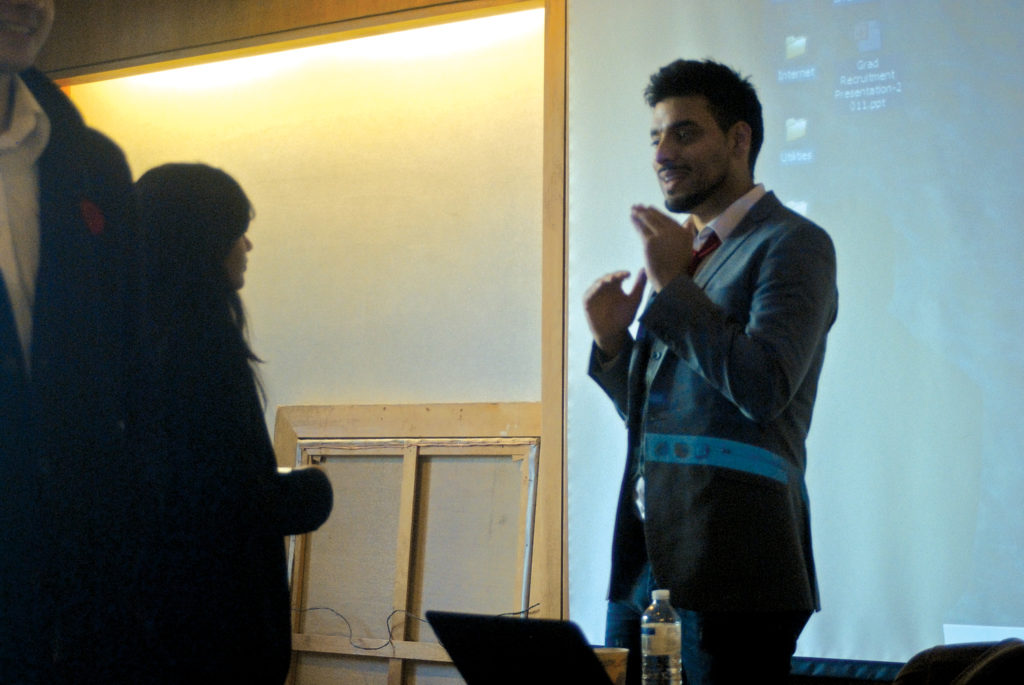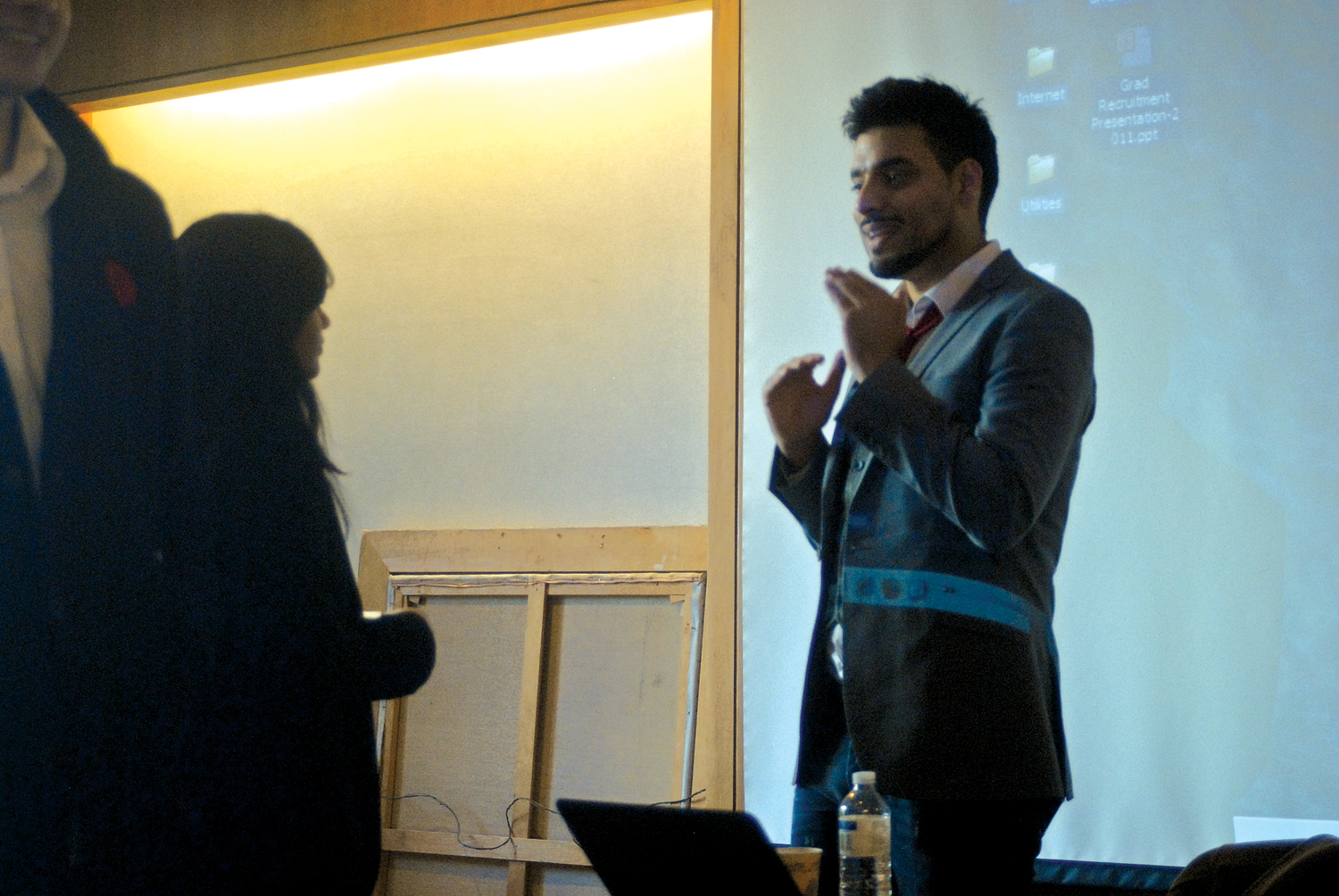Social media has changed the way we hire and get hired, and may be more important than a cover letter and resume
Ernest Reid
Science & Technology Editor

Aizaz Sheikh doesn’t have the right phrase for his presentation.
“I have to stop saying ‘back in the day,’” he says. He scans the crowd of students, trying to think. “In previous times…” he starts again. The crowd laughs and Sheikh joins in with a chuckle.
It’s hard to describe how much has changed in the last half decade. “I was where you are now five years ago,” Sheikh says, but things have changed now.
Five years ago, social media
platforms like Facebook were banned from a company’s workplace. Now, those platforms are a core part of a company’s marketing and recruiting strategy.
Sheikh should know. He works as the marketing manager at Procom, a Canadian IT staffing agency. As an expert in digital and social media, he was invited last week to speak by the American Marketing Assocation at York.
To emphasize how fast things have changed, Sheikh says to think about Barack Obama. In 2004, social media didn’t exist; in 2008, it got Obama elected.
“The President of the United States is probably the hardest job to get ‘recruited’ for,” he says, and Obama did it with social media. New graduates should keep that in mind as they enter the workplace.
Sheikh says there’s been a complete flip in the power structure
of recruiting. Companies don’t
attract people—people are attracting companies. Social media allows us to stand out.
Sheikh is interested in Twitter because it allows average individuals to reach audiences of thousands. If a user directly complains about a company’s service on
Twitter, they will get that company’s attention. That kind of coverage and that kind of impact, Sheikh says, is like being published in The New York Times.
Second only to LinkedIn, Sheikh says Twitter is the most important tool for marketing yourself. On those platforms, people can connect with you right away.
Recruiters are large, he continues, and if you’re in their face—digitally speaking—they’ll notice you.
At the same time, know what your icebreaker is. Have a reason to speak to someone; “don’t go for the head [of the company] if you don’t have a reason,” Sheikh says.
It’s also important to be helpful and kind online. If you have legitimate criticisms of someone’s ideas, Sheikh recommends saving it for a blog post instead of commenting on someone’s page.
“That’s like wearing the best dress on someone else’s wedding day,” Sheikh says.
Sheikh recommends starting a blog. If you have expertise, he says, share it: “The only way to be competitive is to be helpful.”
Become an expert in your field, he says, because companies are looking for them. Have an opinion.
He recommends using keywords that will show up on Google, because Sheikh guarantees that companies will look for you there.
If you have an online presence, you have to keep it active. A dormant profile is a hinder to anyone’s job search. “If you’ve not blogged for three years, how passionate are you?” he asks.
“You are a brand and an asset all the time,” Sheikh continues. You have to manage your online presence all the time; it’s persistent throughout the internet.
Having a plan is essential. Sheikh also suggests having a social media regimen. “We have work-out regimens and hygiene regimens. [Social media] is just as important.”
An online presence is just as important as a cover letter and a resume. Social media is an essential part of finding and getting that job.
Sheikh understands what pressure this might cause. He reminds the audience: “Social media should be fun, even if its used professionally.”


